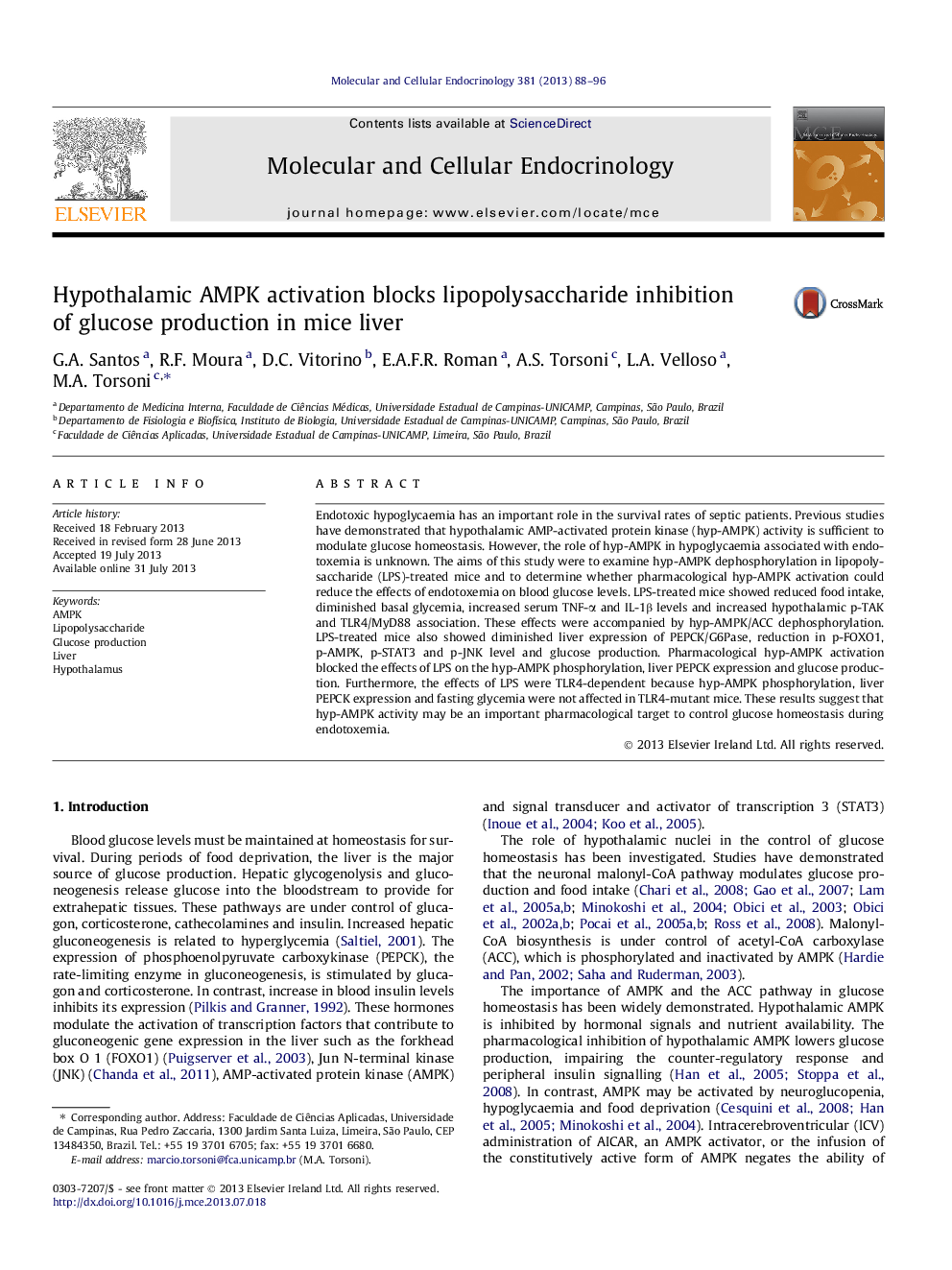| Article ID | Journal | Published Year | Pages | File Type |
|---|---|---|---|---|
| 8477276 | Molecular and Cellular Endocrinology | 2013 | 9 Pages |
Abstract
Endotoxic hypoglycaemia has an important role in the survival rates of septic patients. Previous studies have demonstrated that hypothalamic AMP-activated protein kinase (hyp-AMPK) activity is sufficient to modulate glucose homeostasis. However, the role of hyp-AMPK in hypoglycaemia associated with endotoxemia is unknown. The aims of this study were to examine hyp-AMPK dephosphorylation in lipopolysaccharide (LPS)-treated mice and to determine whether pharmacological hyp-AMPK activation could reduce the effects of endotoxemia on blood glucose levels. LPS-treated mice showed reduced food intake, diminished basal glycemia, increased serum TNF-α and IL-1β levels and increased hypothalamic p-TAK and TLR4/MyD88 association. These effects were accompanied by hyp-AMPK/ACC dephosphorylation. LPS-treated mice also showed diminished liver expression of PEPCK/G6Pase, reduction in p-FOXO1, p-AMPK, p-STAT3 and p-JNK level and glucose production. Pharmacological hyp-AMPK activation blocked the effects of LPS on the hyp-AMPK phosphorylation, liver PEPCK expression and glucose production. Furthermore, the effects of LPS were TLR4-dependent because hyp-AMPK phosphorylation, liver PEPCK expression and fasting glycemia were not affected in TLR4-mutant mice. These results suggest that hyp-AMPK activity may be an important pharmacological target to control glucose homeostasis during endotoxemia.
Related Topics
Life Sciences
Biochemistry, Genetics and Molecular Biology
Cell Biology
Authors
G.A. Santos, R.F. Moura, D.C. Vitorino, E.A.F.R. Roman, A.S. Torsoni, L.A. Velloso, M.A. Torsoni,
